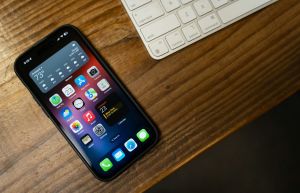Britain's surveillance agency GCHQ may have been tapping into Yahoo webcam images of millions of Internet users without their knowledge, according to The Guardian U.K.
The GCHQ allegedly collected images from 1.8 million Yahoo user accounts during a six-month period in 2008. However, the espionage reportedly continued through 2010. The Guardian reports Yahoo! was "furious" about the use of their services to spy on their users and denied any prior knowledge of the hack.
The U.K. agency released the following statement to BBC News:
"All of GCHQ's work is carried out in accordance with a strict legal and policy framework which ensures that our activities are authorised, necessary and proportionate, and that there is rigorous oversight, including from the secretary of state, the interception and intelligence services commissioners and the Parliamentary Intelligence and Security Committee. All our operational processes rigorously support this position."
According to The Guardian, the images collected from Yahoo! webcams were used for a "massive digital police mugbook of previously arrested individuals."
"Face detection has the potential to aid selection of useful images for 'mugshots' or even for face recognition by assessing the angle of the face," a document obtained by The Guardian reads. "The best images are ones where the person is facing the camera with their face upright."
The American Civil Liberties Union released a statement about the GCHQ's alleged webcam hack:
"This is a truly shocking revelation that underscores the importance of the debate on privacy now taking place and the reforms being considered," said Alex Abdo, staff attorney with the American Civil Liberties Union's National Security Project. "In a world in which there is no technological barrier to pervasive surveillance, the scope of the government's surveillance activities must be decided by the public, not secretive spy agencies interpreting secret legal authorities. This report also raises troubling questions about the NSA's complicity in what is a massive and unprecedented violation of privacy. We need to know more about what the NSA knew, and what role it played."
You can read The Guardian's full report of GCHQ's action here.
© 2026 HNGN, All rights reserved. Do not reproduce without permission.








